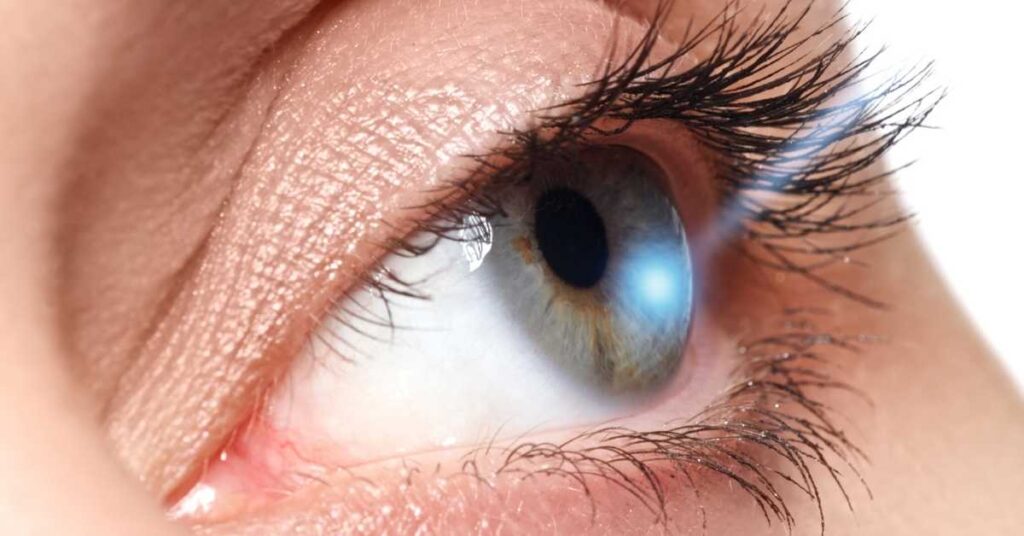Lasik eye surgery is a popular and effective way to improve vision. During the procedure, a laser is used to reshape the cornea, the clear front surface of the eye. This can correct errors such as nearsightedness, farsightedness, and astigmatism. The procedure is relatively quick and painless, and most people see significant improvement in their vision within a day or two. Lasik has become increasingly popular in recent years as technology has improved and more people have become aware of its benefits. If you are considering lasik surgery, be sure to consult with an experienced ophthalmologist to find out if it is right for you.
Laser eye surgery is becoming increasingly popular as a way to reduce or eliminate the need for glasses or contact lenses. The procedure involves using a laser to reshape the curve of the cornea, the clear outer layer of the eye. This change in shape helps to refocus light onto the retina, the light-sensitive tissue at the back of the eye, resulting in clearer vision.
Although laser eye surgery can be effective in improving vision, it does not stop the ageing process. Over time, everyone experiences a gradual loss of muscle tone in the eye, which causes theinner lens to become less flexible. As a result, even people who have had laser eye surgery will eventually need reading glasses. However, they will usually be able to delay this need for several years compared to those who have not had the surgery.
How to prepare for laser eye surgery
The surgery is usually very successful, but it’s important to be well-prepared before undergoing the procedure. Here are some tips on how to prepare for laser eye surgery:
First, you will need to have a consultation with an ophthalmologist to see if you are a good candidate for the surgery. During this consultation, the doctor will evaluate your eyes and explain the risks and benefits of the surgery. Be sure to ask any questions you have so that you can make an informed decision.
Once you have decided to go ahead with the surgery, there are some things you need to do to prepare. First, you will need to stop wearing contact lenses for at least two weeks before the surgery. This is because contact lenses can change the shape of your cornea, which can affect the outcome of the surgery. You should also avoid using makeup or lotions around your eyes on the day of surgery, as these can cause irritation.
Finally, it’s important to have realistic expectations about the results of laser eye surgery. The surgery can correct vision problems, but it will not give you perfect 20/20 vision. Most people who have the surgery end up with vision that is good enough to meet their needs without glasses or contacts, but some people may still need corrective lenses for certain activities such as driving at night.
If you follow these tips on how to prepare for laser eye surgery, you can help ensure that the procedure is successful and that your vision improves afterwards.
What to expect after the procedure
After having lasik eye surgery, most people can see better immediately or within a day or two. It is important to take it easy for the first few days and to avoid rubbing your eyes. You will likely have some mild discomfort and your eyes may be watery or dry. You may also experience light sensitivity and see glare or halos around lights. Your doctor will give you eye drops to help with these symptoms. Most people recover quickly and are very happy with the results of their surgery. However, a small percentage of people may need a second surgery to achieve their desired results.
The benefits of laser eye surgery
There are a number of different benefits that can be enjoyed by those who undergo laser eye surgery. Perhaps most importantly, the surgery can dramatically improve your vision. In addition, it can also reduce your risk of developing other eye problems in the future, such as glaucoma or cataracts. And because the surgery is relatively quick and painless, it is an ideal solution for those who want to improve their vision without disruption to their daily lives.
If you are considering laser eye surgery, be sure to speak with a qualified ophthalmologist to learn more about whether the procedure is right for you.
Risks and complications associated with laser eye surgery
Laser eye surgery is a popular and effective way to improve vision, but as with any surgery, there are risks and complications associated with the procedure. The most common complication is over correction, which occurs when the laser removes too much tissue from the eye, resulting in blurred vision. This can usually be corrected with a second surgery. Other potential complications include under correction, where not enough tissue is removed, and dry eyes. In rare cases, more serious complications such as infection or retina damage can occur.
Despite these risks, laser eye surgery is generally safe and has a high success rate. With proper planning and guidance from an experienced surgeon, patients can enjoy clearer vision with minimal complications.
How laser eye surgery can help you reduce or eliminate the need for glasses or contact lenses
For many people, the prospect of never having to wear glasses or contact lenses again is very appealing. Laser eye surgery offers a way to reduce or eliminate the need for these forms of vision correction. The surgery involves reshaping the cornea, the clear front surface of the eye, so that light enters the eye in the correct position. This can be done for nearsightedness, farsightedness, and astigmatism. The results of laser eye surgery are often dramatic, and patients typically experience a significant improvement in their vision. In addition, the surgery is relatively quick and painless, and most people recover from it within a few days. For these reasons, laser eye surgery can be a very effective way to improve your vision and reduce your dependence on glasses or contact lenses.
Reading glasses after laser eye surgery
It is not uncommon for people to need reading glasses after laser eye surgery. This is because the surgery only corrects the vision at distance, and does not address the vision at close range.
As we age, our eyes gradually lose the ability to focus on close objects, and this condition is known as presbyopia. For many people, presbyopia can be corrected with reading glasses or contact lenses. However, those who have had laser eye surgery may find that their vision is still blurry when they try to read. In some cases, this can be corrected with a second procedure known as enhancement surgery. Enhancement surgery is designed to fine-tune the vision and can often improve reading vision. However, it is not always successful, and some people may still need to use reading glasses even after having enhancement surgery.
The ageing process and its effects on vision
As we age, our vision changes. This is due to the natural ageing process of the eye. The most common vision problem associated with aging is presbyopia, which is the loss of ability to focus on close objects. This usually occurs around the age of 40 and can be corrected with reading glasses.
Other common age-related vision problems include cataracts, glaucoma and macular degeneration.
Laser eye surgery can help to improve vision in patients with these conditions by correcting refractive errors and improving the clarity of the eye.
After an eye (cataract) surgery you must wait few days before travelling.
Laser eye surgery is a safe and effective way to improve your vision. It can help you to reduce or eliminate your dependence on glasses or contact lenses, and it can also help to improve the clarity of your vision. If you are considering laser eye surgery, be sure to speak with a qualified ophthalmologist to learn more about the procedure and whether it is right for you.
Conclusion
Lasik eye surgery is a popular and successful method to enhance your eyesight. It can aid in the reduction or elimination of glasses or contact lenses, as well as improving vision clarity. The operation is simple and painless, with most patients recovering in a few days. However, there are risks and complications involved with any surgical operation.Be sure to speak with a qualified ophthalmologist to learn more about the risks and benefits of laser eye surgery before making a decision. Thank you for reading!





